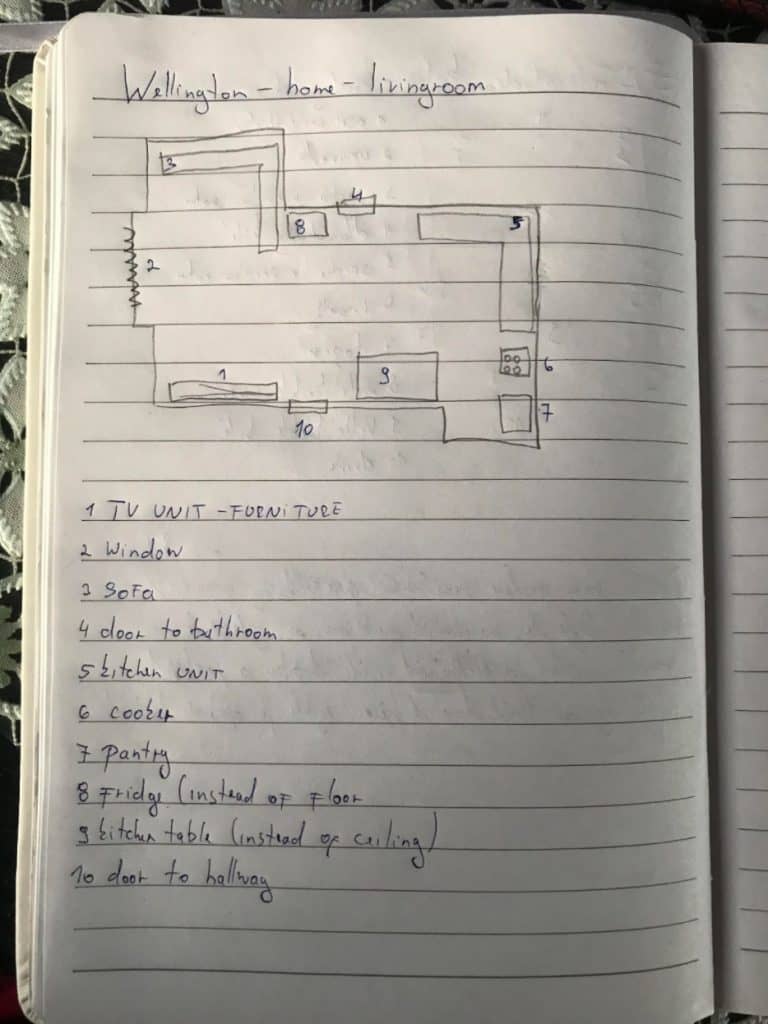 If you want to know how to remember medical terms, you want an intensely fun learning process.
If you want to know how to remember medical terms, you want an intensely fun learning process.
That’s exactly what you’ll get on this page.
But there’s a catch:
When you’re learning how to use high-powered medical mnemonics, you might experience a bit of a stretch.
But only at the beginning.
If you’re willing to give it the “good ol’ college try,” soon you’ll be learning so fast, it’ll make your head spin.
In a good way, of course.
I’ve helped thousands of medical students pass their exams and become the best in their fields.
So if you’re ready for the easiest possible path to crushing your exams, let’s get started!
What Is the Best Way to Start Learning Medical Terminology?
The absolute best way to study medical terminology is to combine multiple memory techniques.
For example, when you’re memorizing the vaccine schedule for infants, you need a number system. When you’re learning the carpal bones, you need to be able to memorize vocabulary.
By being able to deal with multiple types of information, you will enjoy easy street. Otherwise, you’ll be stuck with rote learning and struggle.
So let’s make a simple pact:
You commit to becoming a master of your memory. And I’ll give you the easy way to learn medical terminology.
Sound like a deal?
12 Easy Study Methods to Learn Medical Terminology
Keeping in mind that learning faster involves combining multiple techniques, let’s start with the most important principle.
But please realize as we go through this list that there’s no particular order. They’re all important to get into combination as soon as you can.
One: Spaced Repetition
We all know that we need to review information in order for memories to form.
However, there are good and bad ways to do it. For example, Anki is only a sure-fire learning method if it’s properly optimized for advanced spaced repetition.
Two: Optimize Your Note-Taking
I used to take notes poorly. Fortunately, I discovered how to memorize a textbook correctly.
The key came down to using learning systems that combine the hands with well-constructed flashcards and interleaving.
What is a well-constructed flashcard?
Have a look at this one for glargine that I used to help me remember insulins:
The mnemonic images are Justin Long glaring at Geena Davis, and these celebrities help me remember the name of the drug, and also that it is long acting.
They are personalized by me and there is no answer on the back. You should do this because the science of active recall shows that you will form memories faster by personalizing your mnemonic associations and giving yourself puzzles to solve.
You can also use mind mapping, but this makes it harder to use advanced spaced repetition tactics like:
Three: Learn Your Prefixes and Suffixes
Want to understand medical terms at a glance?
Make sure that you study what prefixes and suffixes mean. This quick video tutorial shows you how.
Four: Master the Memory Palace Technique
The Memory Palace technique is the most important learning technique of all for one simple reason:
It scales.
You can create hundreds of them, which means you’ll have endless space for the 100,000+ data points the average medical professional needs to access.
All you have to do is to establish mental journeys based on familiar locations. Most of my students draw them out to strategize. Like this:
From there, you just think about words you need to memorize. Like the glargine example I gave you above. I placed my quickly sketched association in a living room.
Later, I revisited the association and remembered the name of the drug and other aspects of pharmacology with ease.
Five: Keep A Journal
Journaling will help you develop a personalized medical glossary. A good personal journal will also help you counsel through any learning plateaus you encounter.
Journals are also great places to set new learning goals.
Six: Use Chunking
As you journal, you’ll make note of some words that are especially difficult.
Break these words down into syllables. This is called chunking down. It’s a key strategy for memorizing vocabulary or any step by step process, such as helping a patient through various postural drainage positions.
Seven: Test Yourself Frequently
Students these days are lucky. When I was in university, I had to go to the secretary’s office and ask for the exams from previous years.
These days, there are countless practice tests online.
Then, as now, self-testing and self-assessment is incredibly important. Not only does it provide you an extra layer of spaced repetition. It also gives you important feedback.
Start doing this early so that you never need to cram.
Eight: Never Fear Asking For Help
I’ve seen so many people bail out of med school because they were too proud to ask for help.
In reality, there are all kinds of ways to get help. Some people need to get performance coaching – and there’s no shame in that. I’ve done it myself many times.
Top performers in every area of study frequently seek outside support. It’s part of how they get to the top in the first place.
Nine: Learn From Real-Life Medical Cases
Too often, medical students keep themselves buried in their textbooks.
Although formal study is important, you can speed up your learning by diving into actual case studies.
Fortunately, there are countless books written by professionals about their work.
Skeptical?
There’s actually a time-honored memory technique that that uses story-based linking. A good case study will help many medical concepts and even some difficult terms stick like glue.
Ten: Participate In Medical Studies & Simulations
My student Ivar with whom I run the Magnetic Medical Mnemonics Podcast told me something funny in one of our episodes.
He said that he was looking forward to a knee surgery he needs because it would help him see medicine from the perspective of a patient.
Ivar makes a great point. It’s easy to fall into knowledge traps by looking at things from only one angle.
Obviously, you don’t want to have medical procedures you don’t need. But there are always medical studies going on. Find some that are relevant to your current learning cycle and get involved.
Eleven: Explore Various Forms Of Information Organization
The best way to study medical terminology always involves personalization.
Although it can be useful to organize the information you’re studying by category, this approach might not work for you. It’s possible organizing medical terms alphabetically might be a better memory strategy in your case. You may even want to explore older strategies like the Memory Wheel.
Twelve: Practice Pronunciation
Sounds like a weird way to study medical terms, doesn’t it?
Actually, it’s very effective. Acoustic encoding can be optimized, and focusing on how terms sound can help you remember them better.
It will also help you share your anatomy mnemonics or electrolyte mnemonics with other medical professionals and be understood clearly. That way, you can all memorize fast and ace the MCAT.
Then later, you can help your patients use correct pronunciations as well. That way, when they’re consulting with other people in the clinic, they’ll be able to communicate with success.
Make Learning Medical Terminology A Blast
Above all, it’s important to have fun.
I can’t imagine a better way to do that than becoming an absolute master of your memory.
If you’d like more help on that journey, get my FREE Memory Improvement Kit now:
It will help ensure that you have fun each and every step of the way.
The best part?
You’ll also be able to memorize the names of your fellow students, professors and later, your prized colleagues.
Ready to enjoy learning at the top of your game?
Dive in and make it happen!
Related Posts
- Stoic Secrets For Using Memory Techniques With Language Learning
Christopher Huff shares his Stoic secrets for using memory techniques when learning a language. You'll…
- How to Remember Port and Starboard (From a Memory Expert)
You can permanently remember port vs starboard in a matter of minutes. Learn this simple…
- Nelson Dellis On Remember It! And Visual Memory Techniques
Looking for visual memory techniques? And I mean truly visual. In this episode of the…









